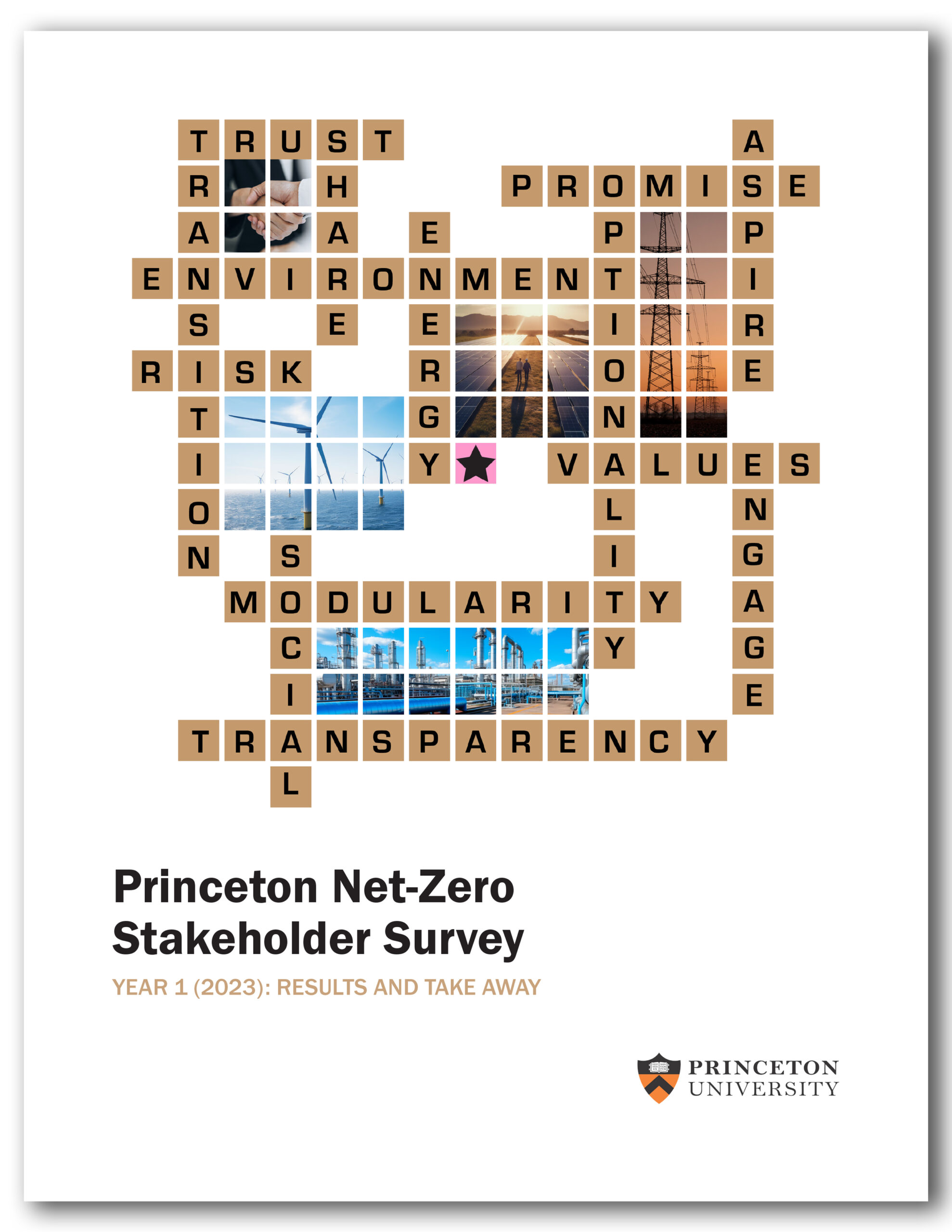Survey of clean energy stakeholders uncovers uneven progress made on key clean infrastructure shifts
Clean energy and industrial infrastructure stakeholders’ perceived progress on several key enablers of the energy transition is mixed, according to a white paper from researchers at Princeton University’s Andlinger Center for Energy and the Environment.
The “Net-Zero Stakeholder Survey,” taken by over 500 international stakeholders with direct experience in net-zero energy transition projects, assessed the progress made in the past five years on several paradigm shifts required for the world to achieve its climate goals. These shifts represent five key behaviors and practices in which rapid and dramatic change is necessary for reaching net-zero while ensuring just outcomes for communities, as identified in the From Ambition to Reality thought leadership series.
The shifts include: 1) reassessing how value is defined and shared for energy projects to include environmental and social values as well as financial outcomes; 2) investing in a diverse range of technologies to ensure resilient net-zero pathways; 3) standardizing approaches to clean energy implementation; 4) establishing symbiotic partnerships between stakeholders; and 5) leveraging the power of digital technology to accelerate clean energy delivery.

“Each of these unique, but complementary, shifts can help accelerate clean energy infrastructure deployment in durable and just ways, but they defy many industry norms,” said report co-author Chris Greig, the Theodora D. ’78 and William H. Walton III ’74 Senior Research Scientist at the Andlinger Center for Energy and the Environment. “However, with most major economies currently tracking at a fraction of the required pace of deployment, we really need to see all five shifts widely adopted this decade if we are to have a chance of meeting mid-century net-zero goals.”
Survey results from the first year, which include responses from experts representing the United States, Europe, and Asia Pacific regions, yielded several takeaways:
- Compared to five years ago, respondents generally felt positive about the progress made to invest in a wider range of clean energy technologies, which has been buoyed by policy incentives such as the generous clean energy investments made under the Inflation Reduction Act in the United States.
- However, respondents indicated that little progress has been made to standardize approaches to clean energy delivery when compared to five years ago. In fact, many responded that while some companies have launched standardization efforts, there has also been an influx of bespoke, one-off clean energy projects and approaches that are difficult to replicate.
- Most respondents indicated a broad reluctance to share designs and learnings from clean energy projects with other stakeholders, a practice that the authors of From Ambition to Reality suggest would speed up energy transition progress.
- Respondents felt there has been little progress made on broadening the definition of value for energy projects to include social and environmental outcomes alongside financial outcomes. Broadening value was also the paradigm shift that respondents had least confidence would improve over the next year.
- Lastly, perceived progress on each of the shifts sometimes varied across stakeholder groups. For instance, owners, developers, and investors reported having consistent and significant access to information and input into clean energy decision-making, while other groups, such as labor organizations and community groups, reported that they felt less involved as partners on clean energy projects.
“We saw that even with significant progress made on some of the shifts over the past five years, the respondents felt that progress on others was minimal or even non-existent,” said Jordana Composto, a graduate student in psychology and the report’s first author. “It will be interesting to compare results from future years against this baseline to see which shifts continue to advance and whether various stakeholder groups continue to hold different perceptions of overall clean energy progress.”
This report is the first in a multi-year effort to track progress made on each of the five shifts over time, providing a baseline against which future results can be compared.
The 2024 survey is now open, and individuals with direct experience related to the clean energy transition are encouraged to contribute.
In addition to Greig and Composto, Elke Weber is a co-author of the report. Weber is the Gerhard R. Andlinger Professor in Energy and the Environment and professor of psychology and public affairs.
The Princeton Net-Zero Stakeholder Survey was supported by the Andlinger Center for Energy and the Environment and Worley Limited, a member of the Princeton E-ffiliates Partnership. The From Ambition to Reality thought leadership series is a collaboration between researchers at the Andlinger Center for Energy and the Environment and Worley Limited.